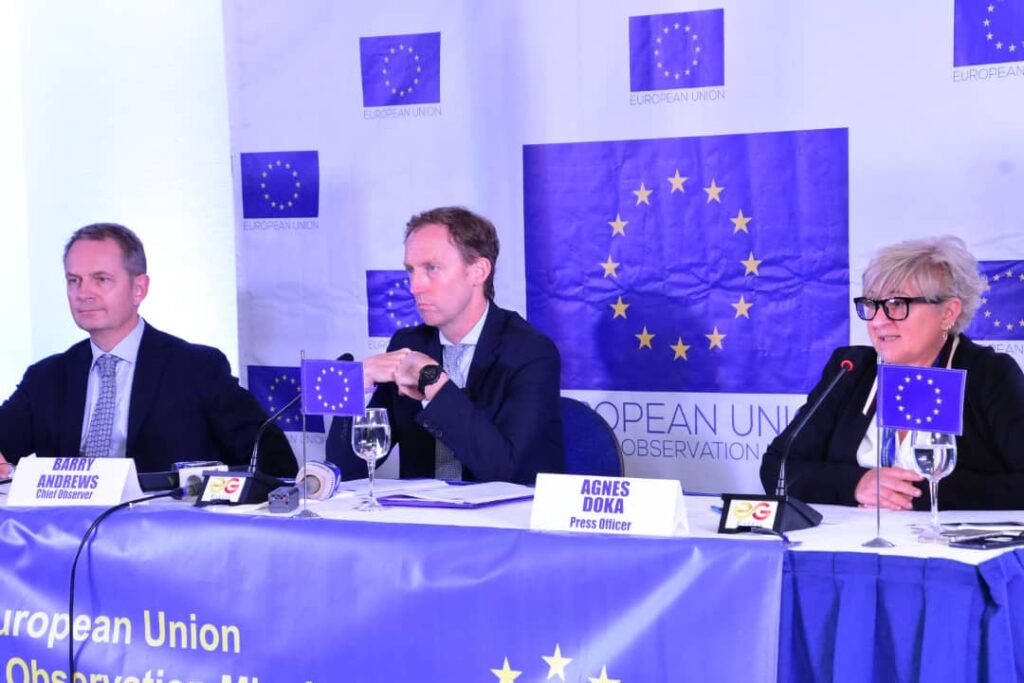The Independent National Electoral Commission (INEC) was responsible for ensuring that the general elections of 2023 were well-managed, transparent, and inclusive. However, the European Union Election Observation Mission (EU EOM) concluded that these conditions were not met.
The EU Election Observation Mission noted that flaws in the law and electoral administration made it difficult to hold inclusive elections that were well-managed, and they seriously jeopardised INEC’s legitimacy.

The EU EOM stated in its final report, which was made public on Tuesday in Abuja, that civil society demanded an independent audit of the entire process since public confidence and faith in INEC had been significantly damaged during the Presidential election and had not been recovered during State-level elections.
“The widely applauded Electoral Act of 2022 (the 2022 Act) included provisions aimed at fostering stakeholder confidence. Nonetheless, the first test of the Act in a general election revealed critical voids in terms of INEC’s accountability and transparency, was insufficiently elaborated, and lacked clear provisions for timely and efficient implementation.
“Weak aspects include a lack of independent INEC structures and capacities to enforce sanctions for electoral infractions and violations of campaign finance regulations.
“Furthermore, the nomination of INEC leadership at the Federal and State levels by the President makes the electoral institution susceptible to the perception of partiality. Closer to election day, some began to question INEC’s administrative and operational effectiveness and internal capacity. Due to operational failures and a lack of transparency, the public’s trust in the organisation progressively eroded, culminating on February 25.
“Although some corrective measures implemented prior to the March 18 elections were effective, overall confidence was not restored,” the report stated.
At a press briefing in Abuja, the Chief Observer of the EU Election Observation Mission, Barry Andrews, stated that his team performed its duties between January 11 and April 11 at the request of INEC.
The EU EOM presented 23 recommendations to the Nigerian authorities for consideration that would contribute to the enhancement of future elections.
Andrews stated, “We are particularly concerned about the need for reform in six areas that we have identified as priority recommendations and that, if implemented, could contribute to improvements in election administration.”
The six recommendations highlight the need to: eliminate ambiguities in the law; establish a publicly accountable selection process for INEC members; ensure real-time publication and access to election results; provide greater protection for media practitioners; address discrimination against women in political life; and end impunity for electoral offences.
Festus Okoye, INEC’s National Commissioner and Chairman of the Information and Voter Education Committee, reacted to the presentation by telling journalists, “We will harmonise all the reports by international observers that have been presented and examine them holistically.
“In the report presented, the EU noted that there have been substantial improvements in our electoral process and that there have been numerous positive aspects to this election.
“One of the positive aspects of this election is that we enrolled more than 93 million Nigerians. Furthermore, if you examine the reports submitted by international observers, the BVAS performed admirably in terms of voter accreditation.
However, Okoye acknowledged that there were obstacles and promised that the recommendations of international observers would be implemented.
